The African countries particularly Nigeria and Ghana are considered as huge consumers of tomato paste but there are not adequate tomato-based processing companies in this area. Over the past decade, Ghana has witnessed a shift in the proportion of its economy that is spent on agriculture to that which is spent on services. The allocation of resources, most notably labor, has migrated away from agriculture and agriculture with value addition and directly into service industries. Agriculture accounted for 62% of all jobs in 1992, but only 42% of all jobs in 2010. This suggests that more than half of the country's workforce, which was formerly employed in agriculture, is gradually transitioning from agriculture to the service sector, skipping over the manufacturing sector in the process. As a direct consequence of this, Ghana's economic transition has skipped over the manufacturing sector and gone directly into the service sector. The contribution of the manufacturing sector to GDP has remained relatively stable over the previous six years, growing at an annual rate that averages 6.25 percent. The manufacturing sector in Ghana contributed only 5.9% to the country's GDP in 2014. This is due to a number of factors, the most important of which include prohibitively expensive energy charges and operating overheads, a low level of financing from the financial services sector, comparatively high credit costs, an infrastructure deficit, and an unwavering reliance on imports. 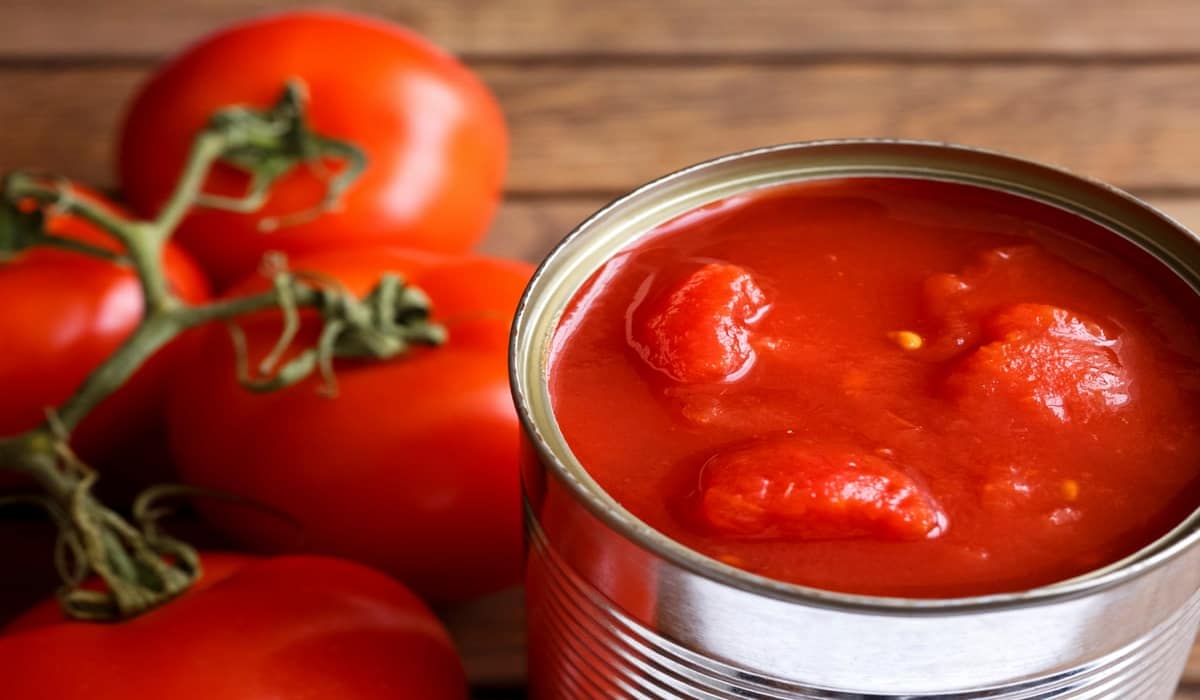 Ghana was placed number 11 in Sub-Saharan Africa ("SSA") among 47 economies covered in the World Bank 2016 Ease of Doing Business Report. It was also named as the best business location in West Africa. This was despite the fact that Ghana is now experiencing energy issues. It is anticipated that Ghana's growth rate would rebound to 5.9% in 2016 (compared to 4.6% for SSA and 3.3% for the world), and then to 8.2% in 2017 (compared to 5.0% for SSA and 3.2% for the world). These growth estimates are supported by increased oil and gas production, investment from the private sector, enhancements in public infrastructure, progressive governance and accountability, and political stability. This report's primary objective is to investigate the potential benefits of adding value to agricultural commodities, and it does so primarily through the lens of Ghana's tomato processing business. Because of the following, analyzing this particular microsegment will be a very intriguing endeavor: It is projected that Ghana consumes more than 100 million dollars' worth of tomato paste on an annual basis, which equates to more than 100,000 metric tonnes. It is possible that farmers' income will improve by a factor of more than five if a tomato processing factory is built within easy access of the area's farmers and is operational during the entire year; and In Ghana, there are around 90,000 tomato producers, and there are more than 300,000 people who are engaged in the retail and wholesale trade of raw tomato and processed tomato products.
Ghana was placed number 11 in Sub-Saharan Africa ("SSA") among 47 economies covered in the World Bank 2016 Ease of Doing Business Report. It was also named as the best business location in West Africa. This was despite the fact that Ghana is now experiencing energy issues. It is anticipated that Ghana's growth rate would rebound to 5.9% in 2016 (compared to 4.6% for SSA and 3.3% for the world), and then to 8.2% in 2017 (compared to 5.0% for SSA and 3.2% for the world). These growth estimates are supported by increased oil and gas production, investment from the private sector, enhancements in public infrastructure, progressive governance and accountability, and political stability. This report's primary objective is to investigate the potential benefits of adding value to agricultural commodities, and it does so primarily through the lens of Ghana's tomato processing business. Because of the following, analyzing this particular microsegment will be a very intriguing endeavor: It is projected that Ghana consumes more than 100 million dollars' worth of tomato paste on an annual basis, which equates to more than 100,000 metric tonnes. It is possible that farmers' income will improve by a factor of more than five if a tomato processing factory is built within easy access of the area's farmers and is operational during the entire year; and In Ghana, there are around 90,000 tomato producers, and there are more than 300,000 people who are engaged in the retail and wholesale trade of raw tomato and processed tomato products. 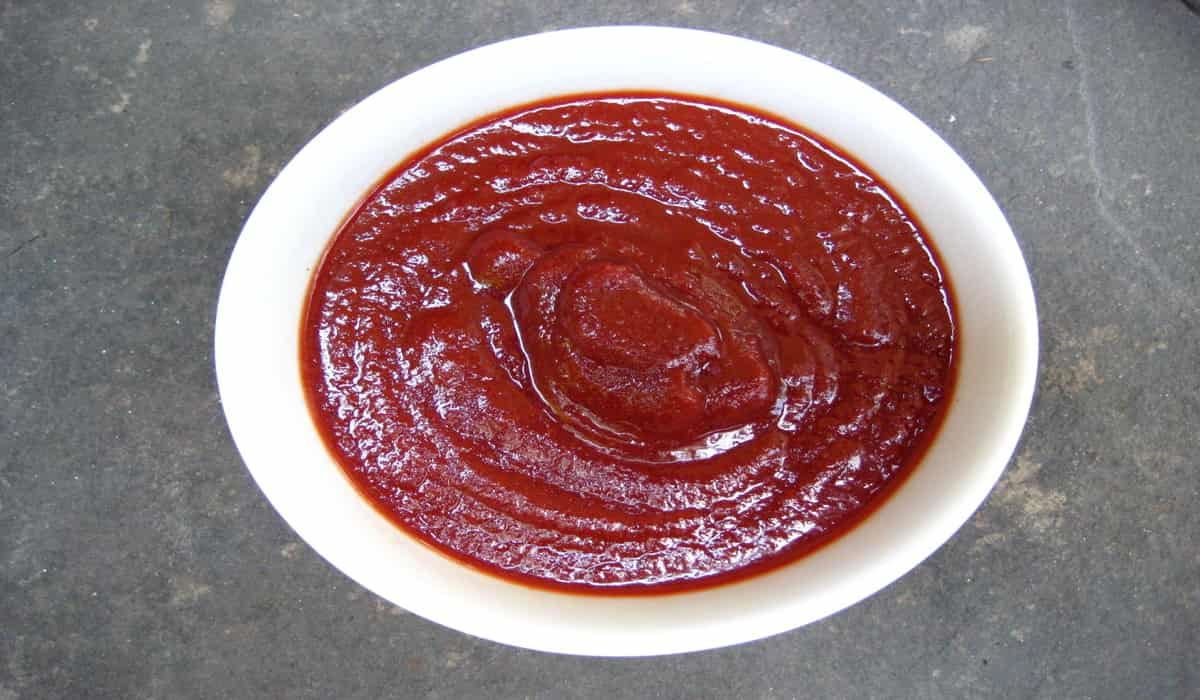 Ghana possesses one of the largest agricultural dams in West Africa in addition to favorable topographical and agroecological characteristics (the Tono Dam, situated in a tomato farming region, can be used to produce tomato all year round). For instance, the proportion of GDP attributable to agricultural value-added has significantly shrunk over the previous decade, falling from 41.5% in 2004 to 19.9% in 2014; in contrast, the contribution of the service sector has expanded, accounting for 51.7% of GDP in 2014 (up from 49.2% in 2009). Ghana's agriculture and agro-processing sector will undergo a transformation in the medium to long term as a result of progressive governance, enabling technology, a reducing infrastructural deficit, and broad strategic measures that attempt to stimulate loans to the primary sector. The Youth in Agriculture Programme is an initiative of the Government of Ghana's agricultural sector that aims to encourage young people to engage in farming and/or food production as a commercial venture. This program is one of the initiatives that seeks to redirect the flow of labor back into agriculture and agroprocessing.
Ghana possesses one of the largest agricultural dams in West Africa in addition to favorable topographical and agroecological characteristics (the Tono Dam, situated in a tomato farming region, can be used to produce tomato all year round). For instance, the proportion of GDP attributable to agricultural value-added has significantly shrunk over the previous decade, falling from 41.5% in 2004 to 19.9% in 2014; in contrast, the contribution of the service sector has expanded, accounting for 51.7% of GDP in 2014 (up from 49.2% in 2009). Ghana's agriculture and agro-processing sector will undergo a transformation in the medium to long term as a result of progressive governance, enabling technology, a reducing infrastructural deficit, and broad strategic measures that attempt to stimulate loans to the primary sector. The Youth in Agriculture Programme is an initiative of the Government of Ghana's agricultural sector that aims to encourage young people to engage in farming and/or food production as a commercial venture. This program is one of the initiatives that seeks to redirect the flow of labor back into agriculture and agroprocessing. 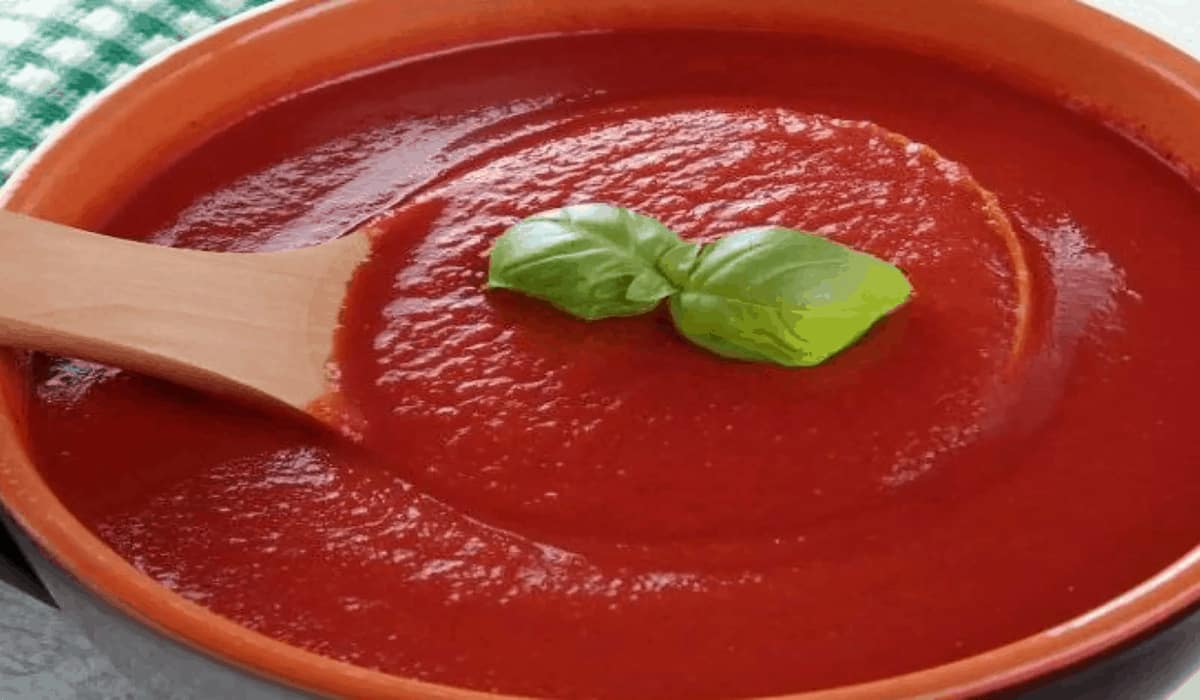
Tomato paste processing
The processing of tomato paste is not a complicated procedure but it needs special machineries. Financial difficulties persist for Ghana as a result of the country's reliance on food imports. First quarter 2015 imports for Ghana was USD 3332.50 million, down from USD 3826.50 million in Q4 2014. Very high, considering the country's abundant natural resources and farmland. Together, manufacturing and farming account for 28.4 percent of GDP. While the service sector has been expanding rapidly, the agricultural industry has been growing slowly (at its fastest rate, 5.2 percent between 2010 and 2014). The agriculture sector's contribution to GDP fell from 31.8% in 2009 to 19.0% in 2015, a startling 12.8% decline. About half of the population lives in rural areas and is mostly dependent on farming, although agriculture is still the greatest job, employing slightly over 40% of the workforce. More than USD 4.23 billion was invested in Ghana's agriculture in 2011, up 70% from the USD 2.490 billion invested in 2010. Although it has a total of 13,628,179 hectares of arable land, only 57.6% (7,846,551 hectares) is actually used for farming. Smart management is needed to realize the industry's full potential. Today, Ghana's agro-based businesses use about 70% more raw resources than the country generates. The value of Ghana's agro-processed exports rose from USD 181.1 million in 2004 to USD 902.5 million in 2011, an increase of 398%. 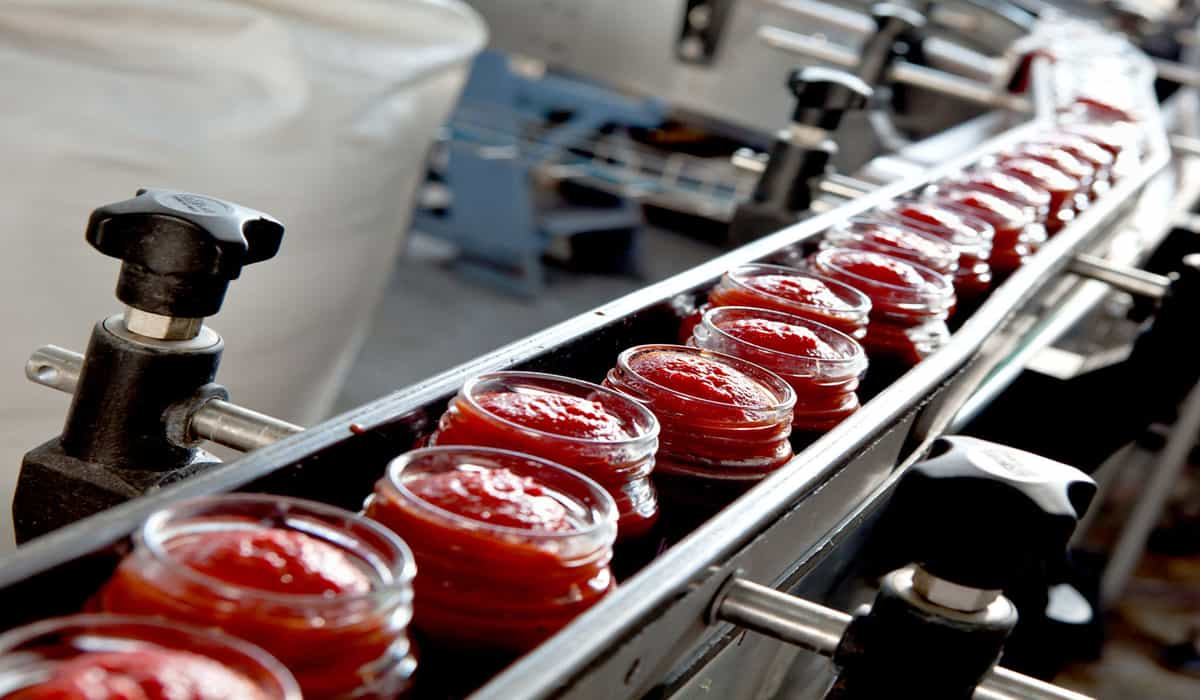 (Oduro and Offei, 2013). In addition, in 2004, agro exports amounted for 7.4 percent of overall merchandise export earnings, a figure which fell to 4.9 percent in 2011. There is a growing middle class in Ghana that would be willing to buy locally processed foods. Despite government incentives (tax holidays) meant to stimulate the local agro and food processing business, high-value food imports have increased rather dramatically, as local food processing remains too small to satisfy local demand. Industry estimates place Ghana's annual tomato output at around 300,000 metric tons, of which 90% is consumed domestically. The average Ghanaian spends 38.0% of their vegetable budget on tomatoes because they are such a mainstay in their daily diet. Ghana's most widely planted types are the processing-friendly Roma VF, Laurano, Raki, Chocó TP, Power Reno, Rasta, Italy Heinz, and Petomech. In every part of the country, the demand for tomato products is on the rise because tomatoes are used in nearly every meal. Consumers in Ghana have developed an insatiable hunger for convenience foods due to the country's expanding middle class and growing urban population. Therefore, there has been a rise in the demand for tomato paste, which is utilized in the cooking of many different types of food. Tomato paste is becoming increasingly popular, both in terms of quantity and quality, across the sub-region, and this trend has the potential to create a sizable market for locally-processed tomatoes.
(Oduro and Offei, 2013). In addition, in 2004, agro exports amounted for 7.4 percent of overall merchandise export earnings, a figure which fell to 4.9 percent in 2011. There is a growing middle class in Ghana that would be willing to buy locally processed foods. Despite government incentives (tax holidays) meant to stimulate the local agro and food processing business, high-value food imports have increased rather dramatically, as local food processing remains too small to satisfy local demand. Industry estimates place Ghana's annual tomato output at around 300,000 metric tons, of which 90% is consumed domestically. The average Ghanaian spends 38.0% of their vegetable budget on tomatoes because they are such a mainstay in their daily diet. Ghana's most widely planted types are the processing-friendly Roma VF, Laurano, Raki, Chocó TP, Power Reno, Rasta, Italy Heinz, and Petomech. In every part of the country, the demand for tomato products is on the rise because tomatoes are used in nearly every meal. Consumers in Ghana have developed an insatiable hunger for convenience foods due to the country's expanding middle class and growing urban population. Therefore, there has been a rise in the demand for tomato paste, which is utilized in the cooking of many different types of food. Tomato paste is becoming increasingly popular, both in terms of quantity and quality, across the sub-region, and this trend has the potential to create a sizable market for locally-processed tomatoes. 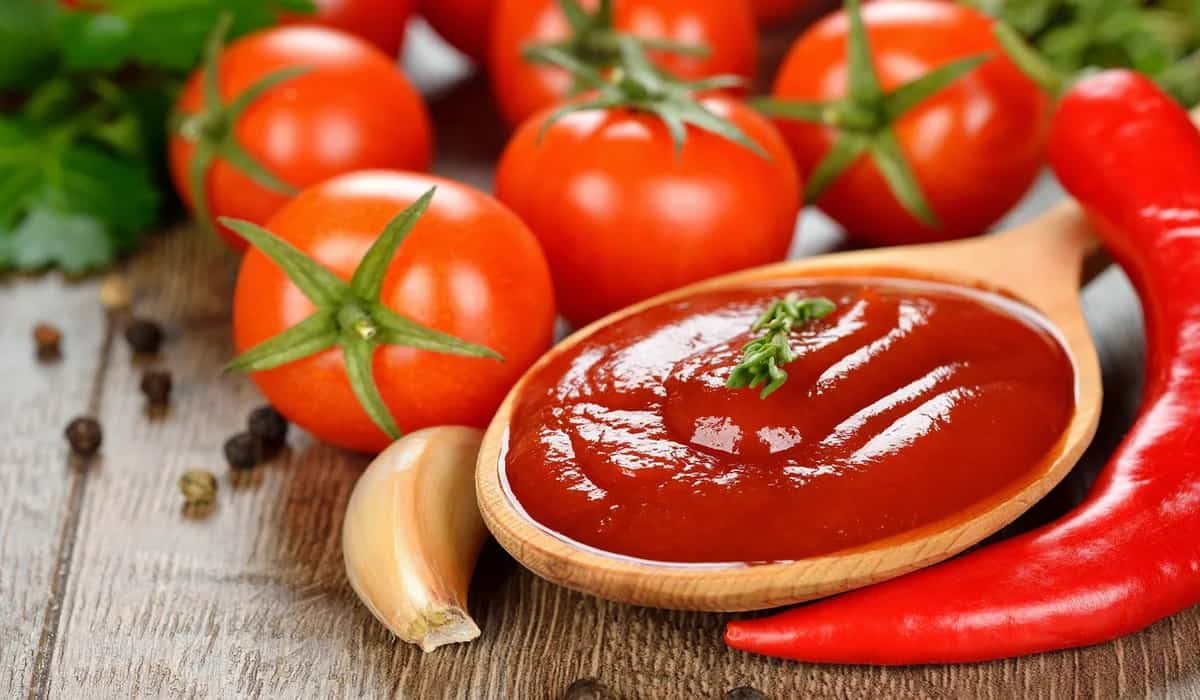 Regrettably, Ghana's tomato processing industry is still quite modest and heavily reliant on imports. Estimates put Ghana's yearly tomato paste consumption at around 100,000 metric tons, at a cost of over USD $100 million. A total of 11,728 agricultural families (an average of 5 people per family) are involved in the production of tomatoes in Ghana's Upper East area. , whereas it imports up to 7,000 tonnes per month from its neighbors, beside 27,000 tonnes of processed tomato from Europe. Ghana possesses the proper topographical and agro-ecological characteristics, and also contains one of the largest agricultural dams in West Africa (the Tono Dam, situated in a tomato farming region, may be used to produce tomato all year round) (the Tono Dam, situated in a tomato farming region, can be used to produce tomato all year round). The shortage and high cost of tomato during the dry and minor seasons in Ghana is what reasons for the excessive importation of tomato paste and goods into the country. For instance, industry data reveals that total production of tomato doubled between the 1970s/80s and the 1990s, but declined from 100,000 tonnes per year to roughly 50,000 tonnes per year in the 1970s and early 1980s accordingly. Then in the late 1980s, production reverted back to roughly 100,000 tonnes, and expanded during the 1990s, averaging around 200,000 tonnes per year by the end of the decade. Notwithstanding this fact, over the 2000s, production declined gradually.
Regrettably, Ghana's tomato processing industry is still quite modest and heavily reliant on imports. Estimates put Ghana's yearly tomato paste consumption at around 100,000 metric tons, at a cost of over USD $100 million. A total of 11,728 agricultural families (an average of 5 people per family) are involved in the production of tomatoes in Ghana's Upper East area. , whereas it imports up to 7,000 tonnes per month from its neighbors, beside 27,000 tonnes of processed tomato from Europe. Ghana possesses the proper topographical and agro-ecological characteristics, and also contains one of the largest agricultural dams in West Africa (the Tono Dam, situated in a tomato farming region, may be used to produce tomato all year round) (the Tono Dam, situated in a tomato farming region, can be used to produce tomato all year round). The shortage and high cost of tomato during the dry and minor seasons in Ghana is what reasons for the excessive importation of tomato paste and goods into the country. For instance, industry data reveals that total production of tomato doubled between the 1970s/80s and the 1990s, but declined from 100,000 tonnes per year to roughly 50,000 tonnes per year in the 1970s and early 1980s accordingly. Then in the late 1980s, production reverted back to roughly 100,000 tonnes, and expanded during the 1990s, averaging around 200,000 tonnes per year by the end of the decade. Notwithstanding this fact, over the 2000s, production declined gradually. 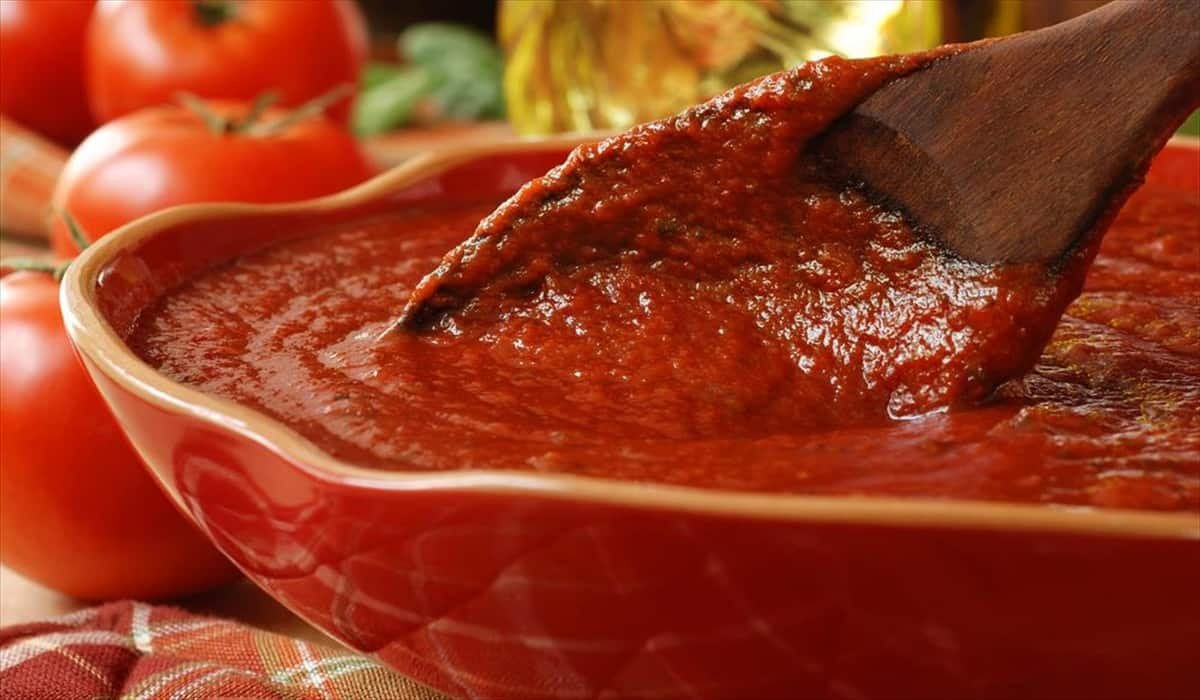
Tomato paste companies in ghana
Although the people of Ghana use tomato paste in large volumes, but there are not enough manufacturing companies for this product in this region. The Ghanaian government constructed the TOMACAN and Pwalugu Tomato Processing facilities in the early 1960s. These two sectors processed tomatoes. According to Robinson and Kolavalli (2010), a number of elements contributed to the failure of both factories in the 1980s, including structural reforms promoted by the World Bank and IMF, frequent breakdowns brought on by a lack of spare parts and outdated equipment, a lack of technical expertise and poor financial management, and ineffective marketing. As a direct result of this, a number of factories were required to close. Since then, the Ghanaian government has made several attempts—all of which, regrettably, have failed—to convert small businesses into big tomato processing plants. Ghana's President John Dramani Mahama recently traveled to Parma, Italy's tomato region, in an effort to persuade large-scale tomato processors to establish operations there. In 2014, the agricultural processing business Techiman Processing Complex built a plant for processing tomatoes. By engaging into a public-private partnership (PPP) arrangement with the Ghanaian government and getting GHS 200,000 in funding from the Export Development and Agricultural Investment Fund, this was made possible ("EDAIF"). The factory had been inactive for a while because there weren't enough raw materials available for production. TEPCO's CEO has stated that the company is still looking for extra finance to support its commercial operations.  Ghana's daily capacity for processing fresh tomatoes is estimated by the Food and Agriculture Organization of the United Nations to be 1,400 metric tons (500 tonnes at Trusty Foods and Northern Star, 200 tons at Afrique Link Ltd in Wenchi and TEPCO in Techiman). Even at full capacity, these three tomato processors could only process 438,000 tonnes of fresh tomatoes annually, which is equal to produce 54,750 tonnes of tomato paste (assuming a paste with a brix of 36-38%, requiring 8 tonnes of fresh tomatoes per tonne of paste). This wouldn't be enough to satisfy Ghana's annual tomato paste demand (in excess of 100,000 tonnes a year). Export-related tax reductions and exemptions Thanks to a corporate tax rebate, any business or person engaged in agricultural production who exports all or a portion of their products is qualified to collect tax refunds of between 40% and 75% of their total tax liability. The exporter may request this rebate. With a custom duty drawback, exporters have the chance to recover up to 100% of the tariffs they spent when importing raw materials to make products for export. Dividends, capital, and profits can all be transferred. Dividends or net profits related to the investment made in the firm must be unconditionally transferable in freely convertible currency to the enterprise through an authorized dealer bank. The Foreign Exchange Act of 2006 (Act 723), as well as any rules and notifications made under it, apply to this provision. This makes it possible to completely repatriate gains in the currency used for the investment.
Ghana's daily capacity for processing fresh tomatoes is estimated by the Food and Agriculture Organization of the United Nations to be 1,400 metric tons (500 tonnes at Trusty Foods and Northern Star, 200 tons at Afrique Link Ltd in Wenchi and TEPCO in Techiman). Even at full capacity, these three tomato processors could only process 438,000 tonnes of fresh tomatoes annually, which is equal to produce 54,750 tonnes of tomato paste (assuming a paste with a brix of 36-38%, requiring 8 tonnes of fresh tomatoes per tonne of paste). This wouldn't be enough to satisfy Ghana's annual tomato paste demand (in excess of 100,000 tonnes a year). Export-related tax reductions and exemptions Thanks to a corporate tax rebate, any business or person engaged in agricultural production who exports all or a portion of their products is qualified to collect tax refunds of between 40% and 75% of their total tax liability. The exporter may request this rebate. With a custom duty drawback, exporters have the chance to recover up to 100% of the tariffs they spent when importing raw materials to make products for export. Dividends, capital, and profits can all be transferred. Dividends or net profits related to the investment made in the firm must be unconditionally transferable in freely convertible currency to the enterprise through an authorized dealer bank. The Foreign Exchange Act of 2006 (Act 723), as well as any rules and notifications made under it, apply to this provision. This makes it possible to completely repatriate gains in the currency used for the investment. 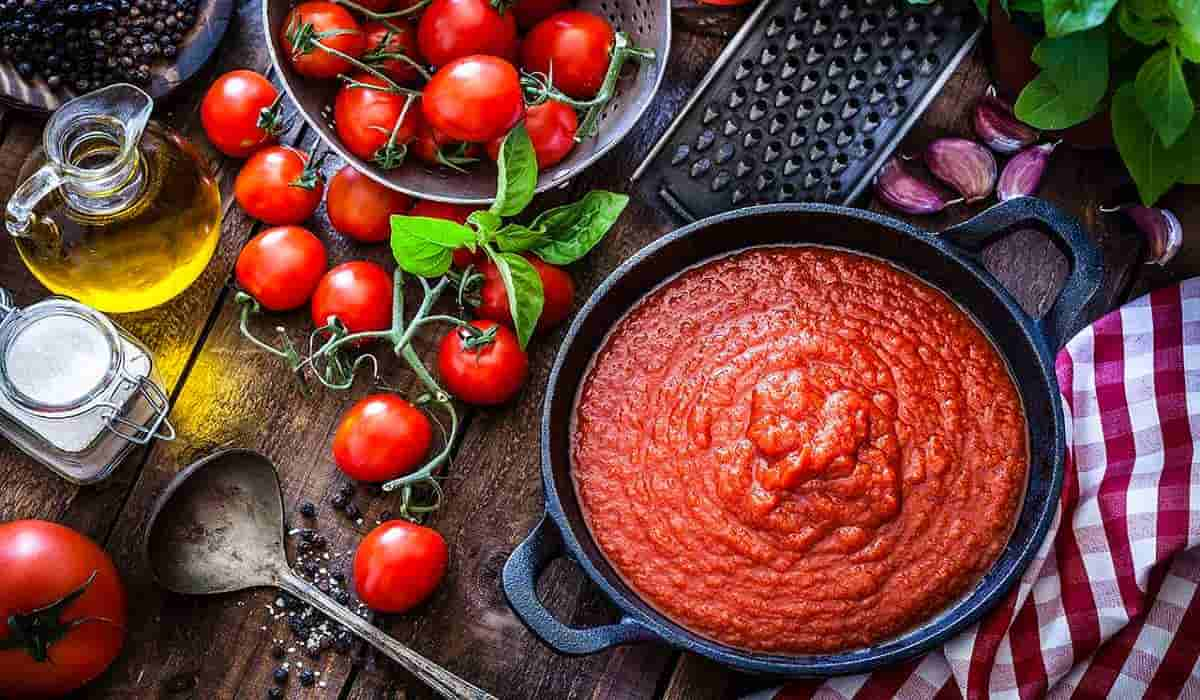 Accords to Prevent Double Taxation Additionally, Ghana uses Double Taxation Agreements (DTAs) to streamline the tax obligations of investors from nations with a global tax base. The intention behind this is to avoid double taxation on investment. Trade Policy in Ghana This policy is set within the framework of Ghana's long-term strategic objective, which includes becoming a leading agro-industrial nation in Africa and attaining middle income status. The context of Ghana's long-term strategic vision informs the establishment of this vision. The plan outlines the guidelines that must be followed in order to carry out the government's domestic and international trade objectives in a clear and open manner.
Accords to Prevent Double Taxation Additionally, Ghana uses Double Taxation Agreements (DTAs) to streamline the tax obligations of investors from nations with a global tax base. The intention behind this is to avoid double taxation on investment. Trade Policy in Ghana This policy is set within the framework of Ghana's long-term strategic objective, which includes becoming a leading agro-industrial nation in Africa and attaining middle income status. The context of Ghana's long-term strategic vision informs the establishment of this vision. The plan outlines the guidelines that must be followed in order to carry out the government's domestic and international trade objectives in a clear and open manner.

